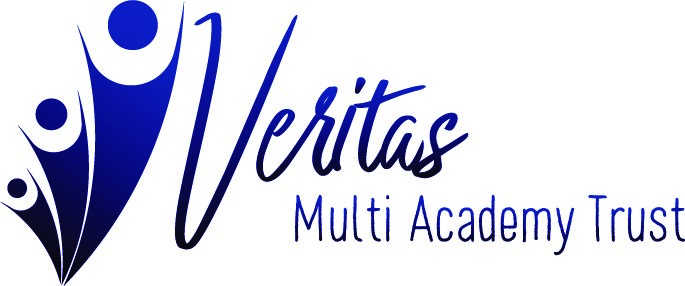SATS and other Tests
How can you prepare your child for their SATs?
Teachers and their teams, across the country, work incredibly hard to ensure that their pupils acquire the skills, knowledge and confidence they need to support them into their next steps in education and throughout their lives. They also have to prepare your children for their SATs. In fact some people say, there can be too much focus!
Read more about SATS here
Teachers and their teams, across the country, work incredibly hard to ensure that their pupils acquire the skills, knowledge and confidence they need to support them into their next steps in education and throughout their lives. They also have to prepare your children for their SATs. In fact some people say, there can be too much focus!
You’ll hear parents talking about the SATs in the playground and maybe worried about how you should help your child.
More importantly when your child comes home it almost inevitable that they will talk about the SATs and you will want to know what to say.
At Key Stage 2, your child will be very aware of the preparation they are doing not only in the school day but some schools will be using before school and after school to give even more support to children. At Key Stage 1 it will be much more low key.
As a parent it is good to be able to respond to any concerns or questions your child may have about their SATs but we must try not to put them under pressure.
Instead we want your help to reassure them that they do not need to worry about taking the tests.
It is important to stress you do not need to do any tests with your child.
11 tips for helping with SATs preparation
- Talk about the SATs and tell them not worry about them. The school will also do this, too, but it makes a bigger impact if school and parents do this together. Children perform best when they are relaxed.
- Reading is a key part of primary education so keep encouraging daily reading whether your child reads on their own or if you read together. Discuss the books, the characters, the storylines and encourage your child to express their own opinions on the book. This is important to their long term development as well as SATs test.
- Play mental games when you are on the way home whether you are walking or driving. Playing card games, Uno, Monopoly and dominoes all help with Maths. Whereas games like hangman, Boggle or Scrabble will support with literacy,
- You can buy test papers and work through them with your child. There are a wide range available to buy. Your child will be doing lots of tests with us so only do more if they enjoy the challenge. If your child doesn’t like them, it is counter productive to force them to do more.
- If you are searching for SATs paper on the internet, remember there are a limited number of new style SATs papers as they only began in 2016. It is best to avoid looking at these with your child as we will use them for practice. For additional free Maths papers you could look at what Third Space Learning have to offer.
- There are lots of revision guides available to buy. You do not have to get one but if your child is reassured by having a book why not choose one together.
- Try to keep everything else running normally. So whether its sport, music lessons or Scouts and Guides; sticking to your normal routine of out of school activities demonstrates to your child that SATs are not the be all and end all.
- During the SATs week, whilst keeping to normal timetable, try to avoid late nights, as children will find sitting the tests tiring.
- Try to make sure your child has some fresh air when they come home from school on test days.
- Stay positive. Many children enjoy taking the tests as they see it as a challenge and, in year 6, they like the importance and the feeling of being special that SATs give.
Remember you do not have to more tests with your child or teach them. The most important thing is to give your child lots of praise as they will be doing their very best.
Multiplication Tests
If your child is in year 4 they will be participating in the multiplication tables check in June.
The purpose of the check is to determine whether your child can fluently recall their times tables up to 12, which is essential for future success in mathematics. It will also help your child’s school to identify if your child may need additional support.
What is the multiplication tables check?
It is an on-screen check consisting of 25 times table questions. Your child will be able to answer 3 practice questions before taking the actual check. They will then have 6 seconds to answer each question. On average, the check should take no longer than 5 minutes to complete.
What if my child cannot access the check?
There are several access arrangements available for the check, these can be used to support pupils with specific needs. Your child’s teacher will ensure that the access arrangements are appropriate for your child before they take the check in June.
The check has been designed so that it is inclusive and accessible to as many children as possible, including those with special educational needs or disability (SEND) or English as an additional language (EAL). However, there may be some circumstances in which it will not be appropriate for a pupil to take the check, even when using suitable access arrangements. If you have any concerns about your child accessing the check, you should discuss this with Mrs Wharmby or Mr Westmorland.
Do I need to do anything to prepare my child for the check?
No, you do not need to do anything additional to prepare your child for the check. As part of usual practice, teachers may ask you to practise times tables with your child.
Schools will have unlimited access to a try it out area from March. They can use this to make sure pupils have the necessary support required to access the check. This includes opportunities for pupils to familiarise themselves with the check application and try out any access arrangements that may be required.
How will the results be used?
Schools will have access to all their pupils’ results, allowing those pupils who need additional support to be identified.
Will I receive feedback on my child’s check?
Yes. Your child’s teacher will share your child’s score with you, as they would with all national curriculum assessments. There is no pass mark for the check.
Mr Scot or another member of the team should be able to answer any questions about the multiplication tables check.
For further details you can also visit www.gov.uk/STA.


